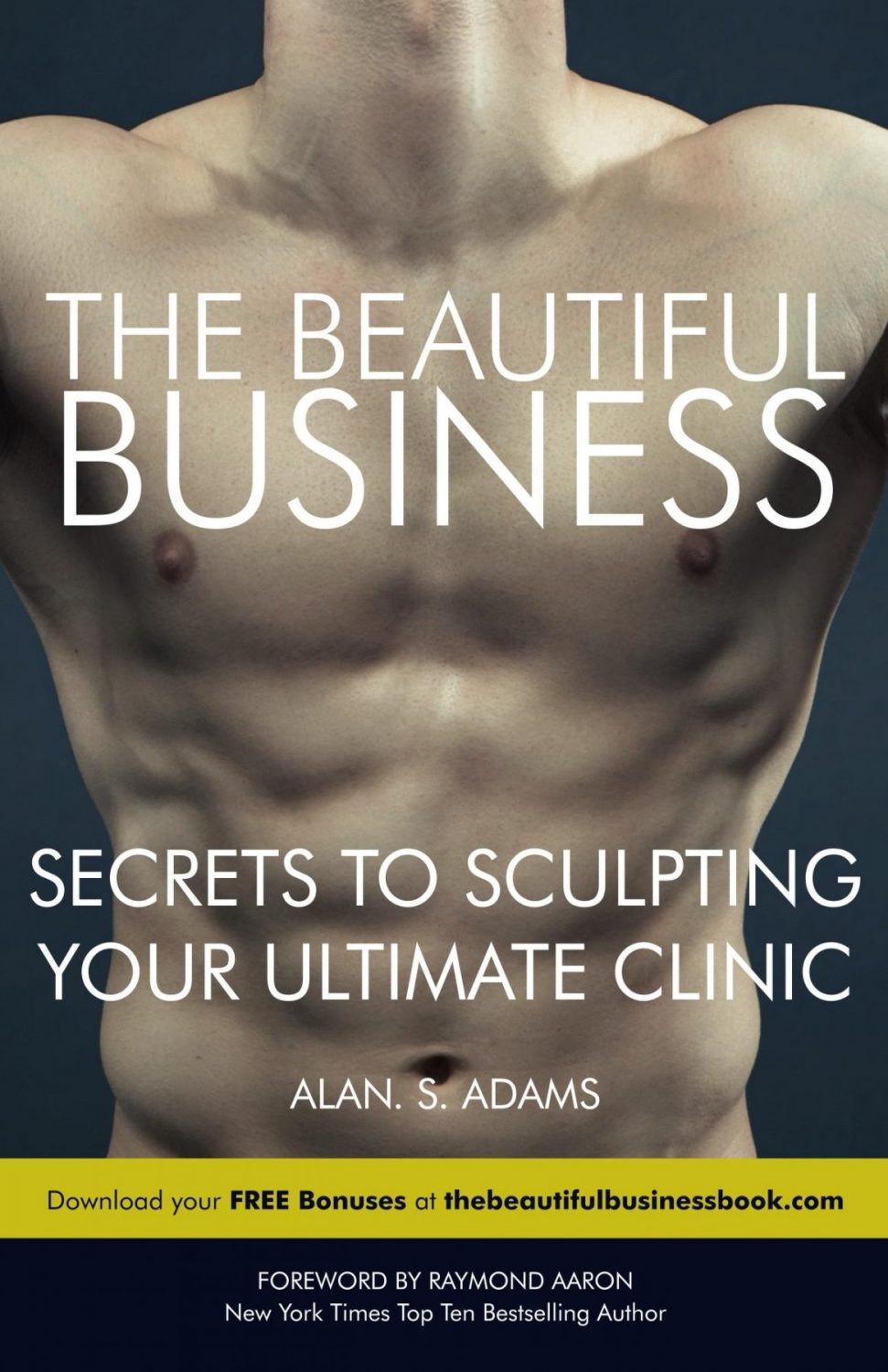I have a picture in my office of someone base jumping off a cliff, with the word “Courage” under it, it always reminds me that mindset is critical to success
Quite often I’ll have people ask me “How do I get more customers?” “How do I develop better products?” Or “How do I make a £million?” I always ask “Why do you want that?” Often the first answer is “I want more money”, but that’s not likely to be the important bit, so I’ll ask again “Why do you want that?” and they start digging around for a compelling reason as to why they’re doing what they’re doing.
There are actually two ‘whys’ you need to know to make building your super-successful clinic easier. The first is ‘why are you doing this?’ Consider what’s in it for you. What is your end goal on a personal level? So, basically consider what lifestyle you want, where you want to live, where you want to travel, who you want to help, how many holidays you want to take, how many days a week you want to work…
And this is important on a couple of levels. Firstly, if you don’t know what your end goal is, you can end up anywhere, and anywhere might not be a place you like very much. And secondly, your brain is incredibly powerful so you need it to be on your side. Quite often people will sabotage themselves without even realising they’re doing it, and here’s how it works…
Your brain, at its very basic level, has two parts; your conscious mind and your unconscious mind. Now your conscious mind can concentrate on seven things – plus or minus two – at any one time, while your unconscious mind, well, scientists still haven’t worked out the exact figure but if you take the average of the different studies, you’re looking at about 7,000,000 (and to have this super-computer to back you up and help you achieve your ambitions is pretty impressive!) However, there is a down side to this and that is that the unconscious mind is as dumb as a dodo.
It works with just a few basic rules and one of them is that it doesn’t understand negatives, so, when it’s presented with something it has to understand, it must first create it in order to be able to process it. Take someone trying to lose weight for an example. They may be saying to themselves “I have to stop eating chocolate cake” but all their unconscious mind hears is “eating chocolate cake” so it immediately goes to work and quite literally feeds the conscious mind with rich images of chocolate cake.
In fact it’s likely to have even worked away in the background to deduce where the nearest chocolate cake is located and what the best way of getting it is (remember it can do 7,000,000 things at once – a rare case of multi-tasking actually working). In this scenario it’s far better to concentrate on what you want to gain – say being healthy and slim – than what you want to lose, because then the unconscious will feed you more helpful images and help you work out how to achieve your positive goal.
Another example is – and for any parents out there, I can absolutely guarantee you’ve done this or heard other parents doing it at least once – a child is climbing along a wall and the parent shouts “Watch you don’t fall.” What does the child’s unconscious mind hear? “Fall!” And it works out the best way to achieve this, runs rich images of it happening, and more often than not, helpfully follows through. Basically, it’s imperative that you concentrate on what you want, and not on what you want to avoid.
Another statistic that I found really interesting in my research for my book is that 77% of self-talk is negative (you know, the little voice in your head that you have conversations with – and if you’re sitting there thinking “I don’t have a little voice in my head”, that’s it right there). If you’re anything like me, you would never talk to someone else how you sometimes talk to yourself, so it’s important to recognise what you’re actually saying and how true that really is. To demonstrate this I’d like you to do a little exercise…
I’ll describe a scenario to you and I want you to close your eyes and actually go through what I’ve described in rich detail. Ready?… Imagine that you’re standing in your kitchen, it’s a lovely warm day and sunlight is streaming through the window. You see that on one of the kitchen surfaces is a lemon, a chopping board, and a knife. You walk over and pick up the lemon, feeling it in your hand. It’s cool, smooth and you can feel the slight pimples in the skin.
You sniff it and there’s a light citrus smell. You place it onto the chopping board pick up the knife and cut the lemon in half, and as you do so, some of the lemon juice runs out and you smell the clean, sharp tang. You take one of the halves of the lemon and cut that in two, then you pick up one of the quarters, hold it up to your nose, and smell the sharp, bitter and fresh tang. Now, bite deeply into the lemon… Run through the exercise and no cheating.
What happened? Your mouth watered didn’t it. And that’s mad when you really think about it. Without wanting to go all ‘The Matrix’ on you, there is no lemon, and yet you had a physical reaction to something that quite simply didn’t exist. It evidences perfectly how your brain doesn’t know the difference between what you simply think and what you actually experience, so if you imagine negative things or say negative things to and about yourself, your brain takes them as absolute fact even though it might actually be rubbish (and is most of the time).
Why not make a note of any negative thoughts you’re focusing on? Gather together a rough list and take just a moment to review it. A lot of the time, once you can actually see your thoughts for what they are, you can see just how ridiculous and harsh they can be. Why not try and replace them with positive affirmations, which are statements that make you feel good, or instead state goals you’d like to achieve?
For example, when I was writing my last book, Survive to Thrive, I wrote out a post-it note and stuck it front and centre on my desk, saying ‘I am an Amazon bestselling author’. Now, I’m actually slightly dyslexic and sometimes my spelling is so bad that even my computer’s spellchecker, whose sole job is to suggest correct replacement spellings, just flashes blankly at me with not a clue what I mean, so my brain could actually focus on a whole host of reasons why this could never be.
It could have called me out and told me that I’m a liar because, right at that second, it wasn’t actually true. But, having really looked at some of the negative stuff I’ve said to myself in the past, I’ve decided that they were lies too, so if I’m going to lie to myself, it might as well be a good one! As it was the book did indeed become a bestseller here in the UK and the USA, so there’s the power of positive thought.
The reason it’s so important to start with these sorts of affirmations and watch the way that we think is because our brains have to delete, distort and generalise the world in which we live in order to cope with so much information pouring in from the outside world. To see what I mean, right this second, take a moment to concentrate on your left foot. Is there any pressure on it? Can you feel material touching it? How warm or cool is it? Now, all of those sensations and feelings have always been there but you didn’t notice them before because your brain decided they weren’t important and filtered them out.
These filters are shaped by the way that we see the world, and – as is our way – we get stuck into certain habits and so only see certain things. It’s undeniably true that what you concentrate on, you’ll find more of. If you think that everyone’s out to get you, for example, your brain will find evidence of that to back up your thoughts. Or if you’re looking for evidence that you’re super-lucky, you’ll find that too.
Depending on what you’re filtering, you’ll have a completely different experience of what’s going on right now than the person sitting next to you. If you believe that it’s really difficult to get new business, guess what, your brain will find loads of evidence to support that for you. How often have you been to the same party as someone else and you had an awesome time and thought it was the best ever, while they complained about the volume of the music, the poor food, or the rubbish company?
So careful what you think, it’s more important than you think 🙂
By Alan Adams The Clinic Coach




